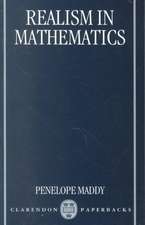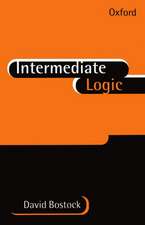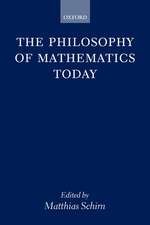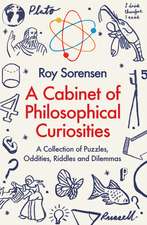Vagueness and Contradiction
Autor Roy Sorensenen Limba Engleză Paperback – 17 iun 2004
| Toate formatele și edițiile | Preț | Express |
|---|---|---|
| Paperback (1) | 333.66 lei 31-37 zile | |
| OUP OXFORD – 17 iun 2004 | 333.66 lei 31-37 zile | |
| Hardback (1) | 369.03 lei 31-37 zile | |
| OUP OXFORD – 27 sep 2001 | 369.03 lei 31-37 zile |
Preț: 333.66 lei
Preț vechi: 410.71 lei
-19% Nou
Puncte Express: 500
Preț estimativ în valută:
63.85€ • 69.34$ • 53.64£
63.85€ • 69.34$ • 53.64£
Carte tipărită la comandă
Livrare economică 11-17 aprilie
Preluare comenzi: 021 569.72.76
Specificații
ISBN-13: 9780199271160
ISBN-10: 019927116X
Pagini: 208
Dimensiuni: 138 x 216 x 14 mm
Greutate: 0.27 kg
Ediția:Revised
Editura: OUP OXFORD
Colecția OUP Oxford
Locul publicării:Oxford, United Kingdom
ISBN-10: 019927116X
Pagini: 208
Dimensiuni: 138 x 216 x 14 mm
Greutate: 0.27 kg
Ediția:Revised
Editura: OUP OXFORD
Colecția OUP Oxford
Locul publicării:Oxford, United Kingdom
Recenzii
Review from previous edition Sorensen's book is well worth reading. His version of epistemicism is a more robust version than Williamson's, and his arguments for being rationally compelled towards inconsistency are important and interesting in themselves ... Anyone working in the philosophy of language will benefit from reading the book; and anyone working on the paradoxes must read the book. I strongly recommend the book as a central text for classes in the philosophy of language (at either the undergraduate or graduate level).
Notă biografică
Roy Sorensen is Professor of Philosophy at Dartmouth College. Before joining Dartmouth philosophy department in 1999 he taught at New York University for twelve years.















